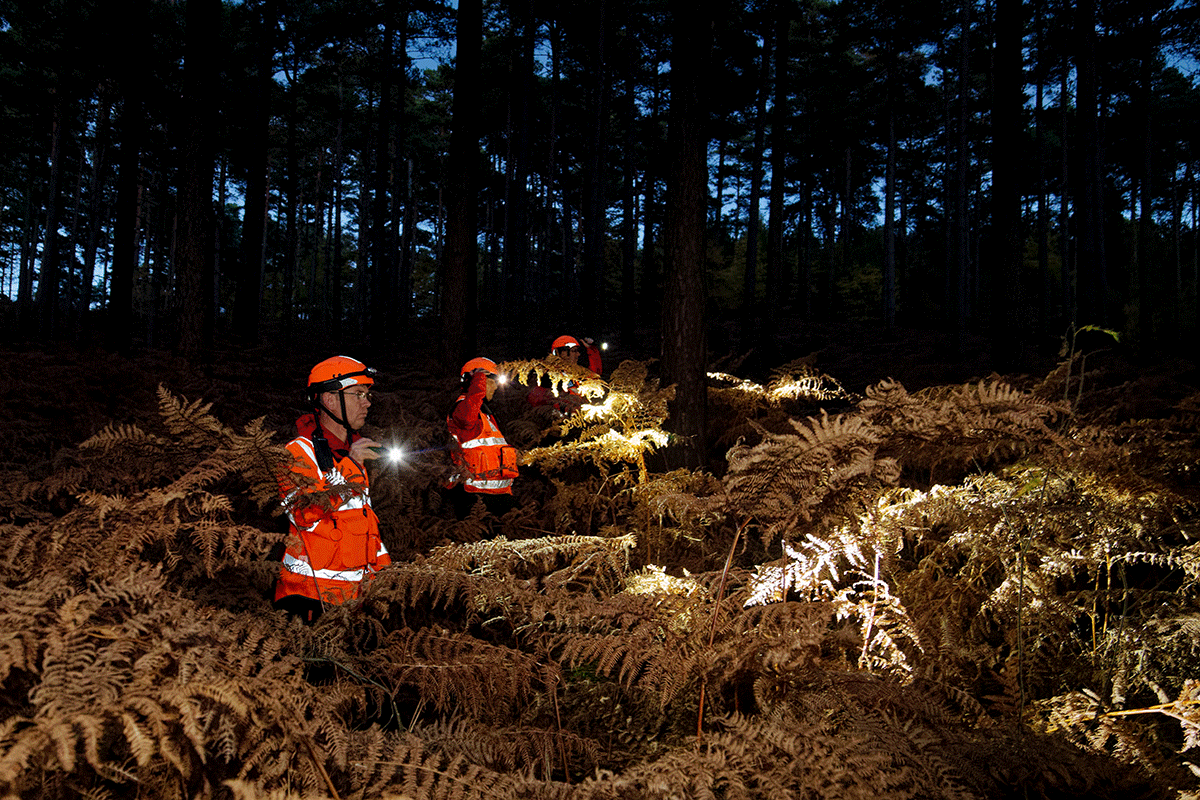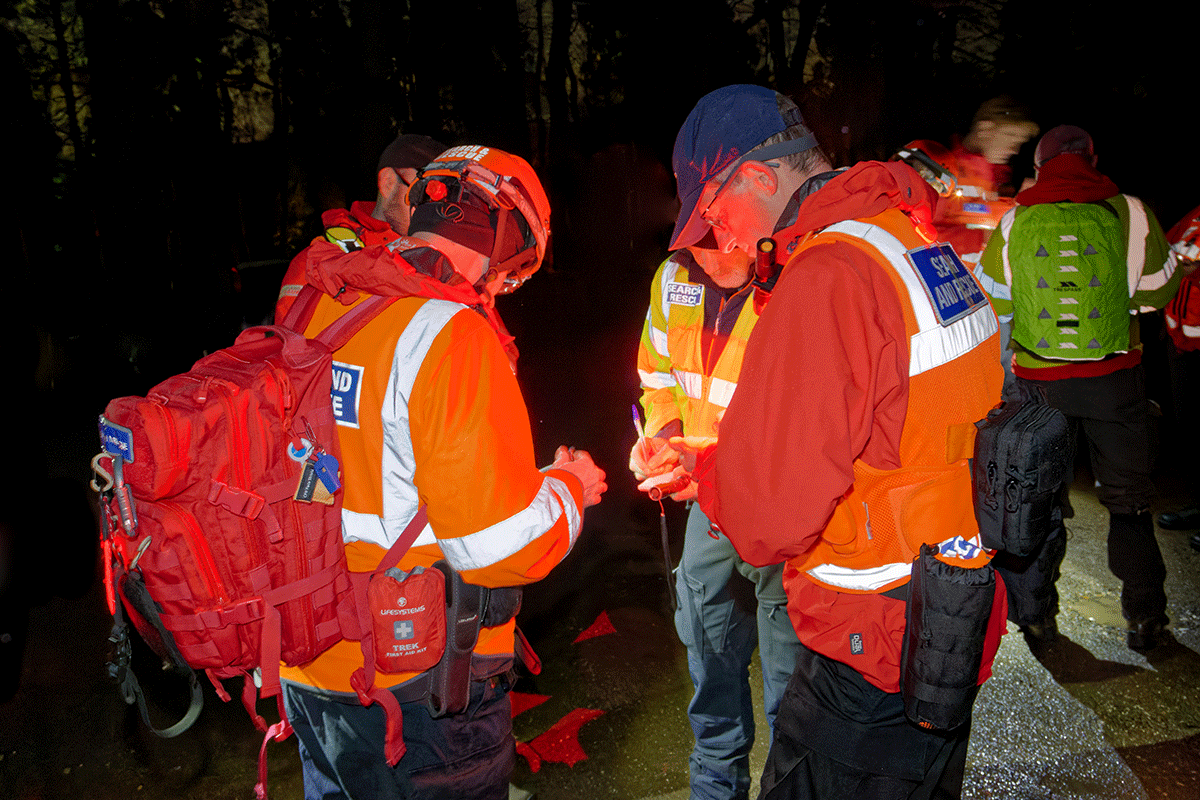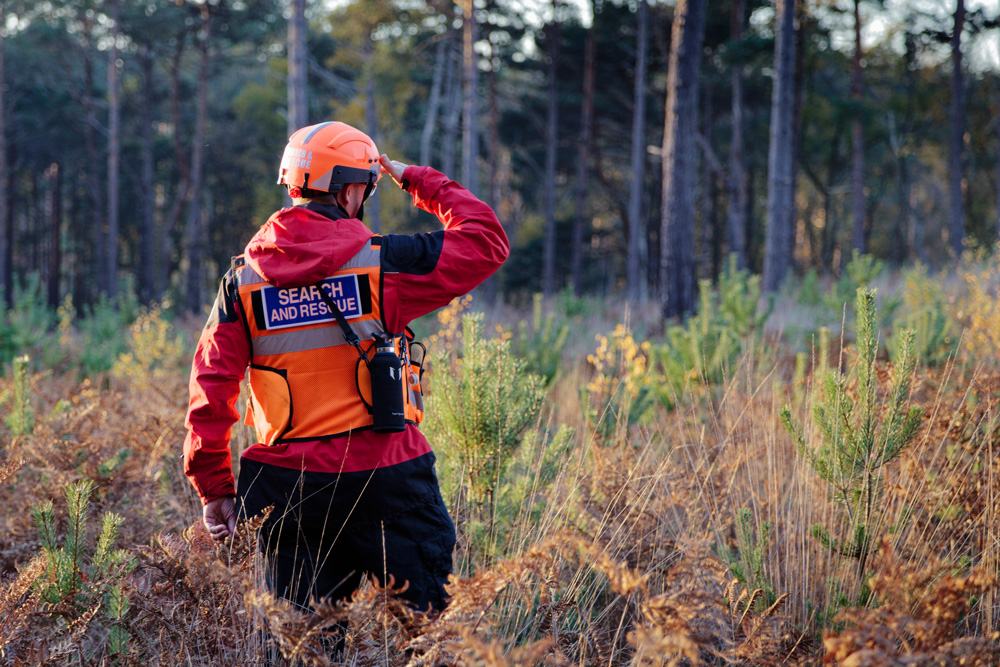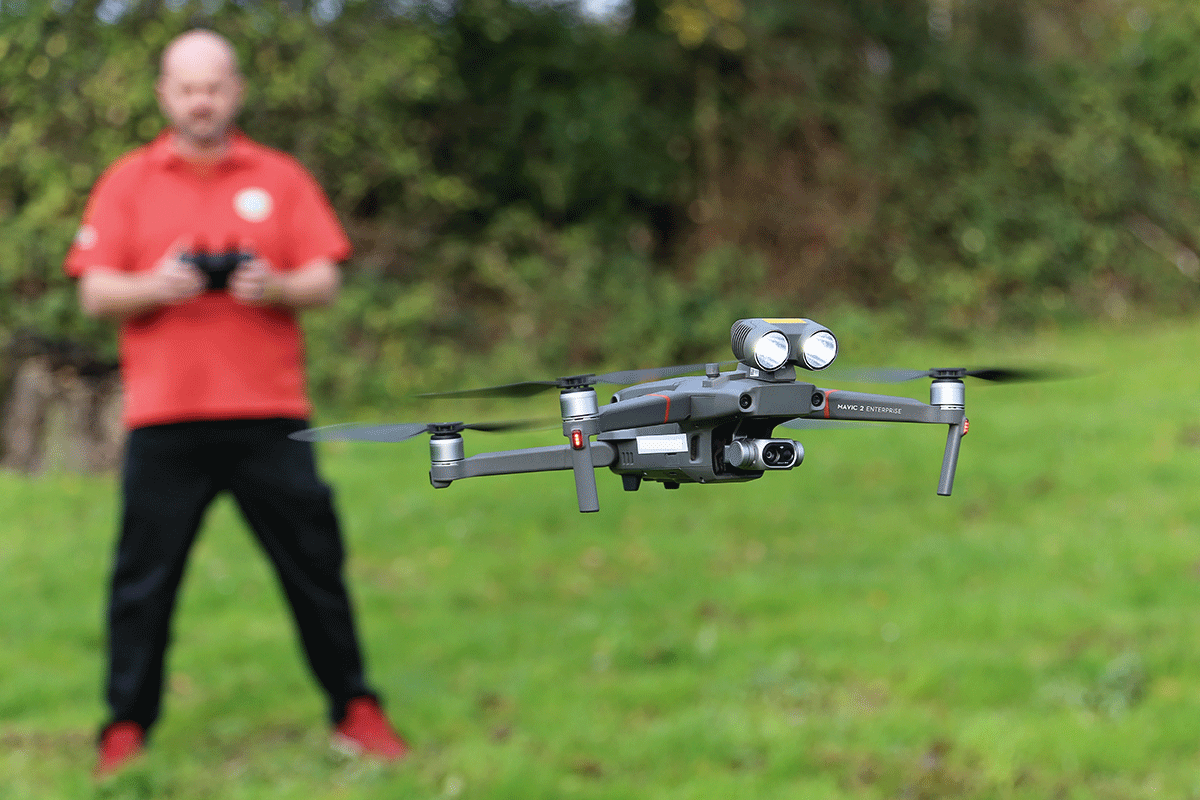The role of Lowland Search and Rescue is often misunderstood and definitely less well known than the likes of the RNLI etc. Whereas the RNLI, Coastguard Rescue, Cave Rescue and Mountain Rescue are usually called to help those that have found themselves in unexpected emergency situations. We may be called to rescue those such as despondent or suicidal individuals intent on self harm, or help those living with dementia who maybe lost and disorientated and unable to bring themselves to safety.

Thames Valley Police (TVP) receive many missing person reports per year, many of these are resolved very quickly, however some cases are not resolved so quickly and give serious cause for concern. Whenever TVP needs additional resources they will often call upon Berkshire Lowland Search and Rescue to provide highly skilled search technicians.
Initially the Police Search Advisor (PolSA) will coordinate with our Search Manager to begin planning the search to assess the resources required, taking into consideration the nature of the missing person, the circumstances leading to their disappearance and the nature of the search area. This analysis allows the team to task the most appropriate resources from our, Foot, Water, Drone or Bike teams accordingly…
- FOOT - Foot search teams will often cover many miles in all terrains, often pushing through thick undergrowth to ensure we cover the search area thoroughly. Many of our despondent or suicidal missing persons do not want to be found so it is vital we scan the area completely so that we can return them to safety.
- WATER - Specialist water team members are highly trained in a variety of inland water search and rescue techniques, they are equipped with two purpose-built inflatables, plus sonar units and underwater cameras.
- AIR - RPAS / Drone team helps us to cover large areas of ground / water quickly. Our 3 drones are fitted with cameras and thermal imaging capabilities allowing us to survey large areas in the dark or in difficult terrain.
- BIKE - Our bike team, equipped with mountain bikes, are able to cover large areas quickly, especially useful on long tracks and urban areas.
Our Incident Control Unit (vehicle) is normally first on the scene, equipped with computerised mapping, navigation and communication systems, providing us with a mobile command centre from which we are able to fully brief and update our team members during the search. Thanks to our reserve of 70+ members, we can usually deploy 20-30 search technicians on most searches, normally split into teams of 4, comprising of a team leader, medic, navigator and communications. Searches can often continue for many hours, even days, sometimes in urban areas, but often in woodland or overgrown and rough terrain requiring many volunteer hours to cover the search area effectively.
Upon locating the missing person our teams are specially trained to interact in a friendly and empathetic manner, or to medically assess and treat the casualty as required. Our hope is that we can save lives and return the individuals to the safety of the Police or Medical care. Unfortunately, we sometimes encounter and end of life situation, which is obviously a very sad and traumatic situation for all involved. Whatever the outcome, search and rescue has its rewards knowing that we are there to help those in need when they most need help.
 |
 |
 |
 |
Charity: We respond to 60+ callouts per year and are 100% volunteer staffed, we rely on fundraising and donations from the public just to exist. We receive no government funding, nor do we make any charge for our services.
To support Bershire Lowland Search and Rescue and help us in our quest to save lives , please visit our fundraising page for ways to help. (Here)
 |
All of our Search Technicians are trained to national standards as directed by Lowland Rescue. Lowland Rescue is the governing body that oversees and amalgamates all the regional Lowland SAR groups. They set the national standards and protocols under which BLSAR, and all other county teams must work to.(Link) |

